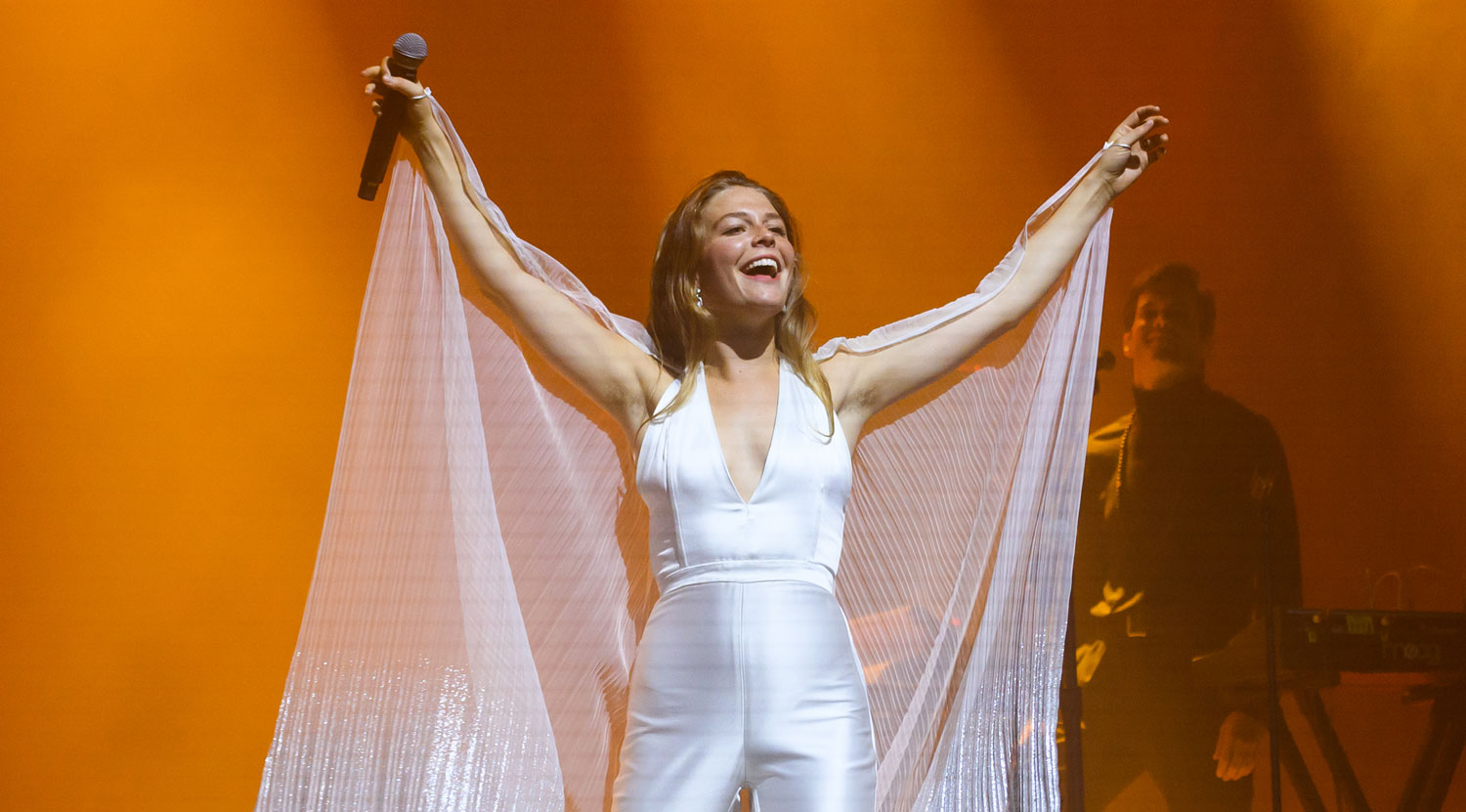Picture this: you’re a young female artist and after three years of constant touring and moving around the world, you’re on stage at the penultimate show of your long touring stint. You look into the crowd and share words about gratitude and personal growth, before playing an acoustic version of the song that was your big break. It’s supposed to be vulnerable, raw, a moment between artist and audience; a point in the show which unites everyone in the room – then some dude tells you to “take your top off … you cute though”. This was Maggie Rogers’ reality last week.
If you’ve never heard of Maggie Rogers, she’s a 25-year-old female singer-songwriter and performer from Maryland, USA. She got her big break after Pharrell Williams heard her song ‘Alaska’ in a music masterclass in New York City, in 2016, but it’s her raw talent that led her onto be the artist she is today. On the night of October 19th, 2019, before performing ‘Alaska’, a male member of the audience shouted for her to take her top off.
Let’s not beat around the bush here, this is sexual harassment. For a young woman, or anyone, to stand on stage and express such vulnerability in an intimidating situation such as a live show conveys her sense of self and the trust she has in her followers. Therefore, to the hear a member of this audience yell something so inappropriate and objectifying is clearly going to have a lasting impact on their views of live performance, and also of how they are viewed by future audiences. It may even make them fearful of performing again.
The verbal assault prompted a post on all of Rogers’ social media platforms, describing how she was “stunned. furious. fuming. confused” and how it had, above all, hurt her feelings. She also talks about bodily autonomy and how she uses her body to communicate her work – inferring that this comment violates a key part of her as a performer. What disgusted me further were a lot of the comments, largely from men, on articles detailing this harassment said that she should just get over it, and that it’s just a bit of fun. This is not ok, and it is quite scary that people hold these attitudes.


Images from The Independet
Whilst music itself is a beautiful thing that unites many of us. However, the persistent sexism that permeates the music industry, and society, results in a consistent sexualisation of performers. There’s an endless debate to be had surrounding whether an artist choosing to be overtly sexual in performances, or music videos, or actually in their music is empowering, or whether it’s actually down to a boardroom full of old white men in suits using a female artists’ body to make millions. There are countless cases of women who work in the music industry reporting accounts of sexism, sexual assault and harassment related to their work. It’s a very well-known fact that Kesha is still undergoing a tiresome legal battle to get out of a contract with her old producer, who is also her assaulter.
English singer-songwriter Lauren Aquilina has recently spoken about the sexism she’s experienced – particularly being spoken down to due to her being a young female songwriter. This isn’t just a problem with music, or industries like it, but a consistent societal discourse alike racism and LGBTQ+ discrimination. How can we prevent cases like the harrassment Maggie experienced from happening again in the future? Is there anything we can do?
I wish I had the answer, but I think it all boils down to continuing to educate people, and to show empathy towards artists, and those around us who suffer harassment like this daily on the streets or in. I don’t think there is a solution as of yet as it’s related to subjective attitudes, but there are things venues can do to make sure an artist and their audiences feel safe. It has not been disclosed as to whether the member of the audience remained in the venue, but this type of behaviour usually falls under ‘zero tolerance’ policies.
In my experience, if a member of the audience is subject to harassment or unwanted behaviour, if security is told, it has become customary for security to linger and remove the perpetrator from the venue if they feel it to be necessary. Whilst this does not prevent incidents, the more widely this policy is acted upon, the more education is spread about what is not tolerated at music events. What happened to Maggie Rogers should not be tolerated.
Sarah Jewers
[Header credit: Just Jared]

